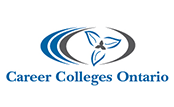Hotel/Resort Management Program Outline
(Please note that programs may be changed or upgraded to meet the demands of industry without notice)
Student Success Strategies 20
Emphasis is placed on thinking about success from day one and developing the non-technical skills to enhance personal, academic and career success. Topics include: goal setting, time management, learning styles, memory techniques, note taking and test writing techniques.
Standard First Aid and CPR 16
A two-day certified course in First Aid and CPR for adults is provided at the College.
Front Office Procedures 64
- The World of Hotels
- The Guest Cycle
- Front Office Management
Housekeeping Management 60
- Introduction to Housekeeping
- Managing Human Resources
- Management Responsibilities of the Executive Housekeeper
- Technical/Reference Guide for Executive Housekeepers
Hotel/Resort Security Management 40
- Preliminary Considerations
- Supervisory Responsibilities
- An Overview of the Occupational Health and Safety Act
Computer Essentials 40
Introduction to computer operations: operating system basics, disk structures, information sharing and customization, keyboarding, windows graphical user interface, basic use of the internet, introduction to word processing (MS Word), spreadsheets (MS Excel).
Hospitality Industry Computer Systems 40
- Computer-Based Hotel Property Management Systems
- Computer-Based Food and Beverage Management Systems
- Other Hospitality Applications
- Management Responsibilities
Supervision and Human Relations 40
- A Framework for Supervision
- Supervisory Responsibilities
- Supervisory Tools
- Improving your Effectiveness as a Supervisor
Sales and Marketing of Hospitality Services 40
- Introduction to Hospitality Sales and Marketing
- Strategic Marketing
- The Tools of Marketing
- Marketing Tools in Action
Practical Placement 135
During the last five weeks of the program the student will supplement their in-class training with an “on the job” practical placement in a hospital and a community pharmacy setting. The placement provides an opportunity to apply the lessons learned in the classroom, gain confidence, and open doors to future employment. Successful completion of the 280 hours of supervised clinical placement is necessary for graduation.
Career and Employment Strategies 20
This module takes you through the various stages of the job search. By the end of the week you will have an effective and ready-to-use resume. The job search process is crucial to your success in finding employment when you graduate. Components include:
- Effective resume and cover letter preparation
- Job search management
- Application process and follow up
- Practice interview questions
- Self-confidence and self-esteem building
- Mock Interview


